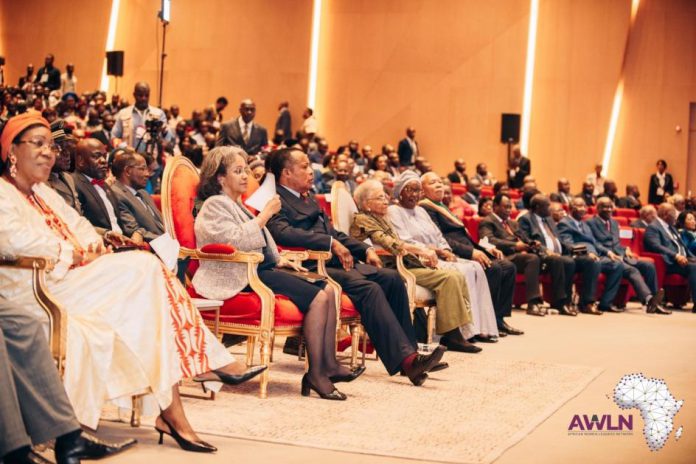Buganda Road court in Uganda has remanded six people including headteachers to Luzira prison over alleged examination malpractice. Among those remanded are Daniel Oleja, Michael Ijalla, and Nasser Sekandi – all teachers from Wakiso-based schools.
They were jointly charged with Tadeo Lukyamuzi, Henry Mirembe, and Emmanuel Oketch, who are headteachers from different primary schools in Kasanda and Kikuube districts. They were caught allegedly buying purported national primary leaving examinations (PLE).
The names of the implicated schools are being kept confidential to safeguard the ongoing investigation. The six suspects appeared in court on Thursday before chief magistrate Ronald Kayizzi. They were charged with unauthorized possession of examination materials under Section 25 of the UNEB Act, 2021.
The court heard that the accused, along with other individuals who remain at large, were found in possession of information purported to be related to the contents of the 2023 PLE question papers for English, Science, SST, and Mathematics. The crimes allegedly took place during the months of September and October 2023 in Kampala and its surrounding areas.
They reportedly operated a WhatsApp group through which they invited unsuspecting members of the public and school headteachers to join and purchase PLE question papers for this year’s primary seven candidates. According to the new UNEB Act, “any person who willfully attempts to gain possession of any examination paper or any part of an examination paper, material, or information commits an offence and is liable on conviction to a fine not exceeding one thousand currency points or a term of imprisonment not exceeding five years, or both.”
Section 25 (2) of the same Act also states that any person who intentionally or negligently aids or causes any candidate to receive or gain unlawful possession of examination material is subject to a fine of up to Shs 20 million or 5 years in prison or both.
In addition to the UNEB Act violations, it’s worth noting that, in line with guidelines established by the Uganda Communications Commission (UCC) in 2017, individuals engaged in the use of social media to facilitate examination malpractice could potentially be held accountable under the Computer Misuse Act of 2011.
The accused individuals vehemently denied the charges brought against them. State attorney Ivan Kyazze confirmed that investigations into the matter are still ongoing, leading to a request for a mention date. According to Kyazze, the suspects were selling fake versions and not the genuine papers that P.7 candidates are set to complete next month.
The magistrate informed the suspects that they have the right to apply for bail. Unfortunately, they were unable to provide sureties, and those who could provide sureties lacked introductory letters from their Local Councils (LCs) confirming their residence.
The magistrate clarified that, in accordance with the chief justice’s bail guidelines, an applicant must furnish an introductory letter from their Local Councils (LCs) as proof of residence. Consequently, the magistrate decided to remand the accused individuals until October 30, 2023, while investigations continue to unfold.
The examination cycle in Uganda is increasingly marred by malpractice, resulting in the withholding of thousands of results each year. One of the underlying factors contributing to this issue is the commercialization of the education sector, which has slowly infiltrated Uganda’s educational landscape.
Year after year, a significant number of examination results are withheld due to malpractice, and the Uganda National Examinations Board (Uneb) has often attributed this problem to weak legal frameworks. However, with the introduction of a new Act, the board has established a robust mechanism for detecting and tracking suspected malpractice, leading to the arrest, prosecution, and sentencing of several individuals involved.
Social media has become another prominent tool for malpractice both before and during examination periods, with teachers and their accomplices creating groups to share what is locally known as “busasi.”
In a notable incident last year, Uneb uncovered a racket involving teachers from Masaka allegedly leaking PLE scripts to candidates via social media. Furthermore, another group was apprehended on the examination day while attempting to unlawfully open a sealed PLE parcel. Their intent was to capture images and share them with their students before entering the examination room.
In addition to those who leaked UNEB papers, several schools and candidates in previous years fell victim to fake examination papers circulating on various social media platforms days before candidates were scheduled to sit for their exams. A total of 1,224,371 candidates have been registered to take their final examinations across the three education levels, namely the Primary Leaving Examination (PLE), Uganda Certificate of Education (UCE), and Uganda Advanced Certificate of Education (UACE).
The national examinations for this year are scheduled to commence on October 13, with the briefing of UCE candidates, and will continue until November 17, 2023. PLE will be conducted from November 7 to 9, 2023, while UACE will take place from November 10 to December 1, 2023.











